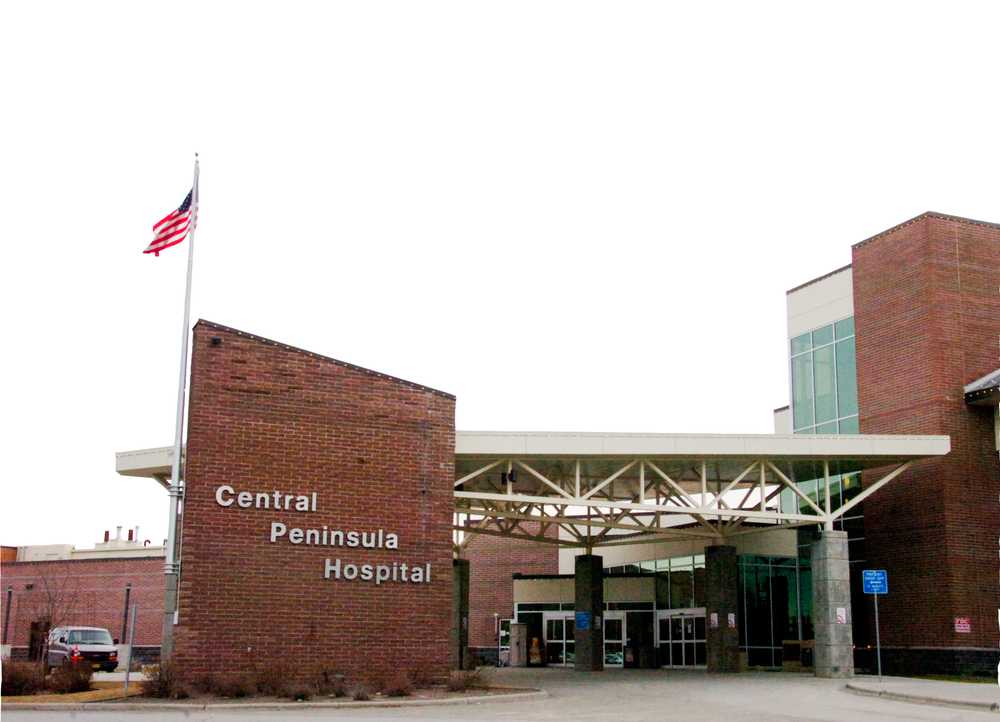Whether in response to looming deadlines for a federal mandate, or a push for better integration between off-campus clinics and the main campus, Central Peninsula Hospital is searching for a high-tech upgrade for its electronic medical records.
Employees at Central Peninsula Hospital spent three weeks in February hearing from three vendors who are in competition to land a multi-million dollar contract to provide a new electronic health records system to replace the hospital’s 15-year-old system.
Between the different departments of the hospital, its clinics and the private clinics it supports, the hospital’s information technology manager estimates there are more than 100 different types of software contributing information to a patient’s medical record.
“That system is old, it’s dated and we’ve got to do something new,” said CPH External Affairs Manager Bruce Richards. “(It) is a clunky system. There’s a lot of logging in and logging out and if you want to get a picture of someone’s medical history, some of it might be over here and over there … it’s not very conducive to good patient care. It’s time consuming.”
The hospital’s main goal is to consolidate all of the information into one place — but it also must meet federal guidelines for “meaningful use” of certified electronic health record, or EHR, technology to avoid being penalized under a 2009 act that established an incentive program for certain health care providers to adopt new technology.
CPH Information Services Director Bob Wattam said the hospital’s current system, provided by a Massachusetts-based company called MEDITECH, meets the initial requirements to be certified for meaningful use. However as those requirements become more stringent, upgrades will be needed.
Under the American Recovery and Reinvestment Act of 2009, or ARRA, the meaningful use requirements are broken up into three phases. At their most basic, stage one requires the digitization of health records; stage two expands into quality measurement, clinical decision support and information exchange; and stage three seeks to improve health outcomes for patients and populations, according to the U.S. Department of Health and Human Services definitions.
Central Peninsula Hospital is certified for stage one and currently in the process of certifying for stage two of the meaningful use standards, Wattam said.
The hospital began its search in November by hiring a contractor, Health System Informatics, to run the search and selection process for a vendor. Ultimately, three companies, Cerner Corporation, MEDITECH and Epic Systems were given the opportunity to submit proposals. Hospital employees where then tasked with coming up with a name for the new system.
“The whole project has now become (known as) ECHO,” Richards said.
In addition to naming it, hospital employees also developed a series of requirements for the system — everything from how the login screen would look, to which fields needed to be available to input patient data.
Wattam said the departments came up with about 5,000 requirements.
One big requirement, Wattam said, was better communication between the main campus of the hospital and its clinics.
“Right now, we don’t have a lot of bi-directional information going between the hospital and the clinics. We want to have better communication through the physician offices and the hospital … so when the patient goes to the clinic, their record will be seen at the hospital. Really, that’s kind of the whole goal is to get our data more centralized.”
The hospital is also working to improve its patient portal which allows patients to access their medical information via the hospital’s website.
After the vendors spend time showing off the potential new software, hospital staff have the chance to grade the systems and, Wattam said, hopefully a frontrunner will emerge.
Richards estimates the project could cost the hospital between $5-$15 million to implement, depending on the hardware upgrades that are needed and how the hospital chooses to implement the new system.
In addition to the up-front cost of implementing the new system, ongoing maintenance costs have the potential to cost several hundred thousand to millions of dollars a year. Richards said the hospital could pay anywhere from $500,000 to $1 million a year in maintenance.
“Traditionally industry standard is 8-12 percent of the cost of the software,” he said. “That’s licensing, support, all of it and it’s a negotiable thing, it’s one of those things that we’re right in the middle of determining.”
Before any contracts are signed, the hospital will have to bring the project to the borough assembly for approval. Wattam said the hospital would like to have a vendor selected and a final price by April, though details about when the hospital would implement the new program are still up in the air.
“It’s anywhere from 6 months to probably 18 months, depending on how much we try to accomplish,” Wattam said.
Reach Rashah McChesney at rashah.mcchesney@peninsulaclarion.com.

